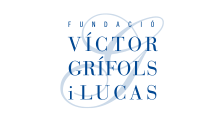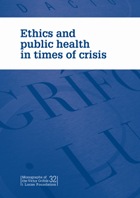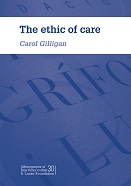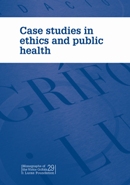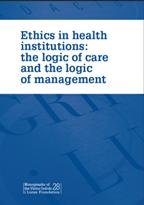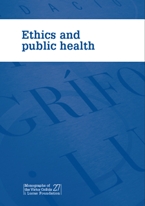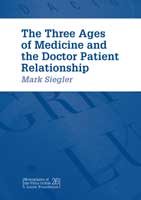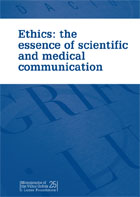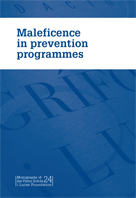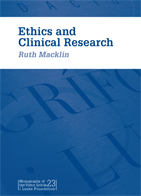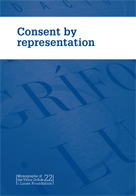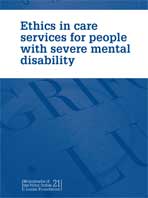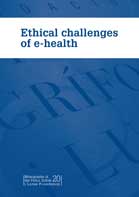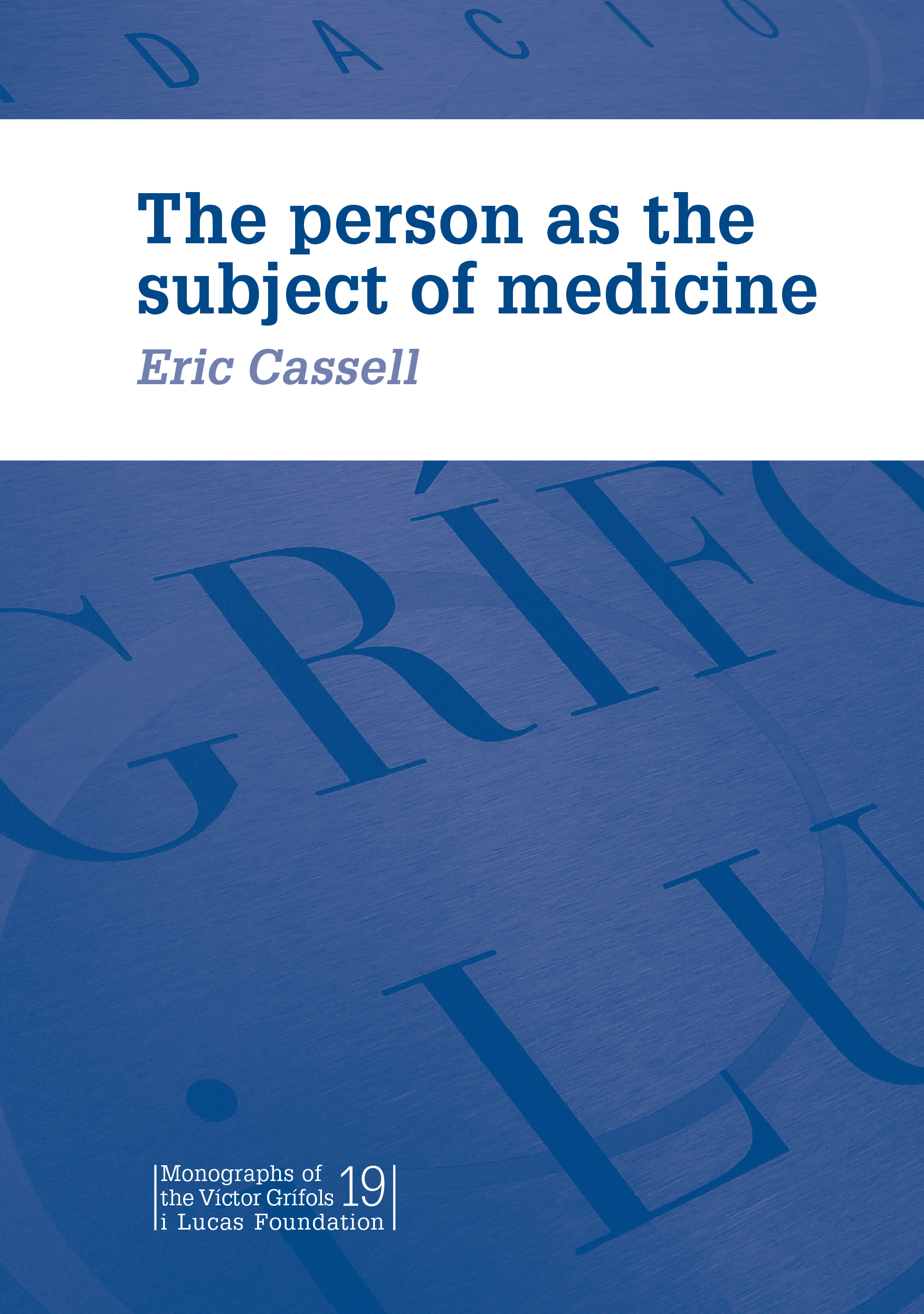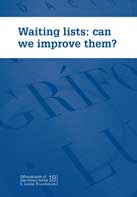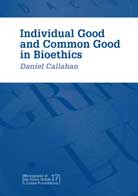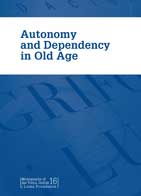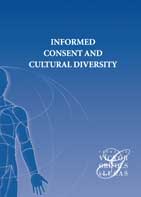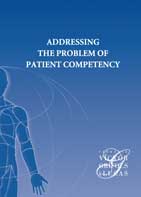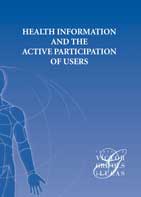32. Ethics and public health in times of crisis
The consequences of the economic crisis on health depend largely on the policies that are adopted, which should not only take into consideration the healthcare sector, but all sectors that condition and determine the health of people. This report analyzes the effects of the crisis on vulnerable individuals and on mental health and the roles that users and professionals must follow in order to use healthcare services properly.
31. Transparencia en el sistema sanitario público (The health system and transparency)
The current economic crisis and its impact on the health system are giving rise to a program to reform the system's existing structure, organization and services. In this monograph, Joan Subirats, professor of Political Science at the Autonomous University of Barcelona, and Joan Turró, director of the Fundación Universitaria Balmes, consider the questions of transparency, evaluation and systems to prevent corruption. The monograph also includes contributions from a number of experts with suggestions for improving the transparency of health management.
Only available in Spanish.
30. The ethic of care
The driving force behind the ethic of care, Carol Gilligan, was guest speaker at the VI Josep Egozcue Conference. Gilligan vindicates a social transformation that starts by paying attention to the voices of women and ending the existing patriarchal structure. Her opinions are shared by several experts who contribute by exploring the concept of care and its importance in society.
29. Case studies in ethics and public health
This book introduces three real ethical dilemmas that may face public health professionals in their daily practice: the management of pandemic influenza, conflicts of interest and functional foods. These three cases aim to provide new educational materials and to generate future reflections concerning public health.
28. Ethics in health institutions: the logic of care and the logic of management
In hospitals and other healthcare institutions there are at least two different ways of thinking that must live side by side: the healthcare viewpoint and the management viewpoint. The different viewpoints stem from values, principles and decision making criteria that do not always coincide. However despite the dissonance, we can find many points in common. This monograph considers the different viewpoints, the values and the roles of the different professionals in the healthcare sector.
27. Ethics and public health
This report aims at encouraging more awareness of ethics within the public health sector. It includes those aspects that are susceptible to ethical consideration and also elements for the development of a casuistry of application of bioethics to public health. Proposals for designing an educational training program are also included.
26. The three ages of medicine and the doctor-patient relationship
Mark Siegler, the guest speaker at the IV Josep Egozcue Conferences, dedicated this cycle of lectures to discussing the three ages of medicine and the doctor-patient relationship. During the first lecture he focused on the transformation that the relationship with the patient has undergone throughout history. During the second lecture he talked about the past and future contributions of clinical ethics. He developed this term to refer to ethics applied in the practice of medicine. Several other experts enriched the debate with their contributions to the discussion.
25. Ethics: the essence of scientific and medical communication
Information and communications technologies have revolutionized the world of journalism and, in general, the way in which the public has access to medical and healthcare knowledge and information. Ethics now has new perspectives in this field that are worthy of analysis. In this monograph Vladimir de Semir, director of the Observatori de Comunicació Científica de la Universitat Pompeu Fabra, (Scientific Communications Observatory of the Pompeu Fabra University) analyzes the current situation with regard to scientific communications. Other experts have also contributed with their thoughts on the transformations that have affected healthcare journalism.
24. Maleficence in prevention programmes
Bioethics is a discipline which is of growing importance in the healthcare world. However, up to now, interest has been centered on its clinical application rather than on the public health sector. This monograph goes in to the subject in more depth, by studying prevention programs; specific reference is made to secondary prevention programs for the detection of breast cancer. These types of programs offer benefits to the community as a whole but not always to the individual involved. Several experts analyze non-maleficence and other basic ethical principals that arise when faced with such programs.
23. Ethics and Clinical Research
Ruth Macklin, professor of bioethics at the Albert Einstein College of Medicine in New York, was responsible for delivering the 3rd Josep Egozcue Lecture Cycle. Macklin dedicated this year's lectures to Ethics and Clinical Research. This monograph includes her three talks: Research Ethics Today, Multinational Research; and Grey Areas: Drawing the Line Between Research and Non-research.
22. Consent by representation
21. Ethics in care services for people with severe mental disability
In the course of their daily work, those caring for people with serious learning difficulties continuously encounter ethical dilemmas which have to be resolved. This monograph brings together the thoughts and concerns of experts in ethics of and professionals who work in care centres. It is designed as a working document which we hope will provide a starting point for drawing up a code of good practice.
20. Ethical challenges of e-health
In recent years, the expansion of the internet has given rise to significant changes in the health sector, affecting both access to information and the relationship between service users, medical professionals, the health industry and researchers. This monograph explores these issues and the ethical challenges they raise. It includes a working paper by Gema Revuelta and Cristina Aced of the Scientific Communication Observatory of the Pompeu Fabra University, an account of the development of a virtual nursing portal, by Gisel Fontanet of the College of Nurses of Barcelona, and contributions from a number of experts in the field.
19. The person as the subject of medicine
In recent years, the expansion of the internet has given rise to significant changes in the health sector, affecting both access to information and the relationship between service users, medical professionals, the health industry and researchers. This monograph explores these issues and the ethical challenges they raise. It includes a working paper by Gema Revuelta and Cristina Aced of the Scientific Communication Observatory of the Pompeu Fabra University, an account of the development of a virtual nursing portal, by Gisel Fontanet of the College of Nurses of Barcelona, and contributions from a number of experts in the field.
18. Waiting lists. Can we improve them?
This monograph analyzes one of the major problems in public health, that of waiting lists. Despite the theoretically universal nature of public health coverage, not all patients have the same access to it. Concepts such as equity, distributive justice or inequality between patients arise when we consider this issue in more depth. The monograph sets out the key drawbacks of waiting lists and suggests ways of addressing these. Contributors included Marisol Rodríguez, professor of Health Economics at the University of Barcelona, Àngel Puyol, doctor in Philosophy at the Autonomous University of Barcelona, and Juan del Llano, director of the Fundació Gaspar Casal.
17. Individual Good and Common Good in Bioethics
Achieving a balance between the individual good and the common good is one of the aims of ethics. In health issues, the challenge of reconciling individual desires with the common good is intensified by the fact that while our demands grow inexorably, the resources to fully satisfy these demands are scarce. Professor Daniel Callahan dedicated the first edition of the Egozcue Lectures to addressing this issue, considering it in the light of medical progress, medicine and the market, and declining birthrates.
16. Autonomy and Dependency in Old Age
The autonomy of elderly people who suffer from functional limitations is a key challenge for societies seeking to adapt to the problems of ageing and rising life expectancy. In this monograph, papers by Bernadette Puijalon, Josep Vila and Moisés Broggi provide contrasting perspectives on this challenge, drawing on anthropology, applied psychology and lived experience, respectively. Together, they make it clear just how many different aspects there are to the issue of autonomy, while at the same time stimulating new questions.
15. Informed consent and cultural diversity
14. Addressing the problem of patient competency
Much progress remains to be made about patient competency in decision-making, and this issue requires new skills and techniques. How should we respond to a patient's refusal to undergo surgery? How do we distinguish between normal and incompetent decisions? This monograph explores these and other questions regarding the competency and autonomy of the patient.
English version only available in pdf format
13. Health information and the active participation of users
The aim of the study was to find out to what extent the information that patients and their relatives or friends receive, relating to the particular pathology they are suffering from, or the chances they have to play an active role in the taking of necessary decisions involved in the treatment of their disease, are satisfactory or not. The process undertaken in the interview stages and in the conclusions deduced were presented by the authors to a group of experts who amply debated.
